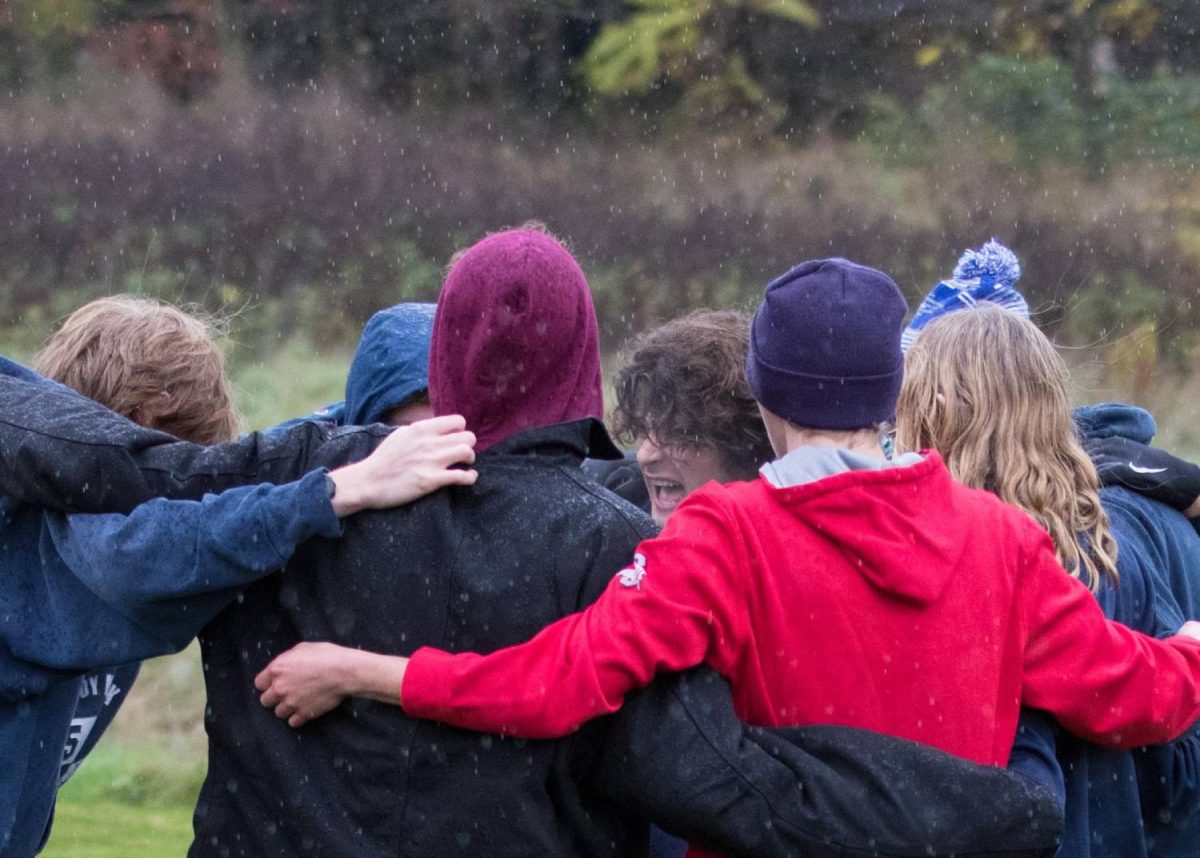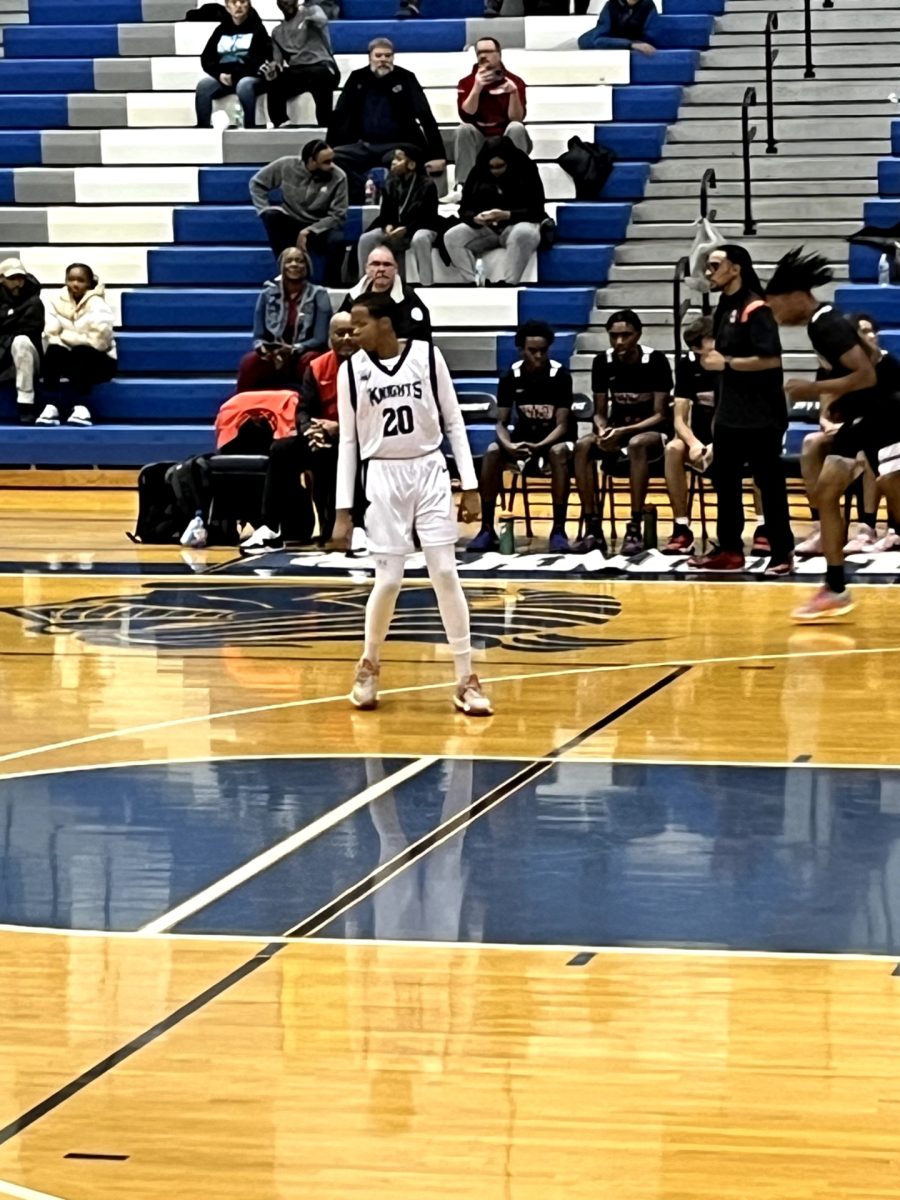The cold fall air is silent following the holler of “on your marks!” from the official in the bright red coat. Tension builds from the hundreds of boys on the start line to the spectators on the sideline. The silence is broken, to the surprise of the crowd: not by the sharp crack of the starting gun, but from the low rumble of the hundreds of runners synchronously slapping their thighs.
Although it seems strange, this phenomenon occurs at cross country races all over the country, from middle school to collegiate levels. It has become a routine that runners associate with the start of a race, including junior John Hawver, a runner on the Loy Norrix cross country team.
“It doesn’t feel right if it [knee slapping] doesn’t happen,” said Hawver. “Everyone on the line is feeling the same fear, and it’s a way we can turn some of that fear into excitement.”
Oftentimes, athletes participate in rituals that involve their eating habits. Routines that keep up good nutrition before performances provide not only mental relief, but can also provide a boost in physical health and performance.
“The whole team gets together right after school,” varsity football player Ethan Hall said. “We go over film, and someone hosts a dinner, usually with a lot of protein. It’s a great way to get ready with not only food but team bonding too.”
Completing a routine before every event can give people a sense of being fully ready and prepared to start their event. However, failure to complete the routine can lead to feeling unprepared and rushed, which makes athletes less able to control their anxiety.
“Sometimes, when the game is really far away, we don’t have time for dinner or film review, and we’re given a boxed meal that isn’t super-filling,” said Hall. “Without the good food or team bonding, everything feels incomplete, and none of us are as ready as we can be.”
Given their effectiveness, superstitions and rituals are not exclusive only to sporting events. Many students follow routines before performances of the arts, such as music or theater, which are very similar in the way they cause stress for performers, as senior Ellen Terzino has observed.
“I need to have my hair, makeup and costume done in the same order every time,” Terzino said. “If I feel rushed or anything is out of place, it makes it much harder to focus.”
Rituals may not be just superstitions, however. A study done by the University of Vienna, The effectiveness of pre-performance routines in sports: a meta-analysis, by Anton Rupprecht, found that athletes from fifteen different sports who used pre-performance routines accomplished their task significantly better than those who didn’t. These pre-performance routines also helped calm anxiety and promoted a sense of familiarity among the performers, putting them in a better mental state for their performance.
“Even though they [rituals] don’t always do something physically beneficial, they’re a great way to get your mind off of the nerves,” said varsity swimmer Gavin Lepley. “By completing my routines, I can get a sense of being fully ready to take on whatever I need to do.”










Kathleen Kiplinger • Jun 7, 2024 at 5:24 pm
Great article, Nolan. I liked input from athletes of different sports. Also, liked the contrast of athletes’ input who did not complete the requisite routines and how they felt less prepared for the competition.